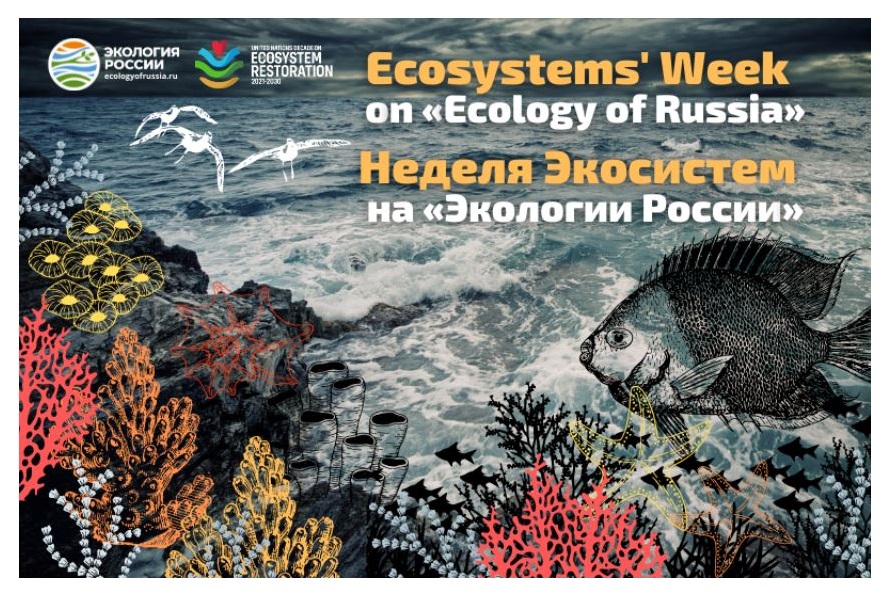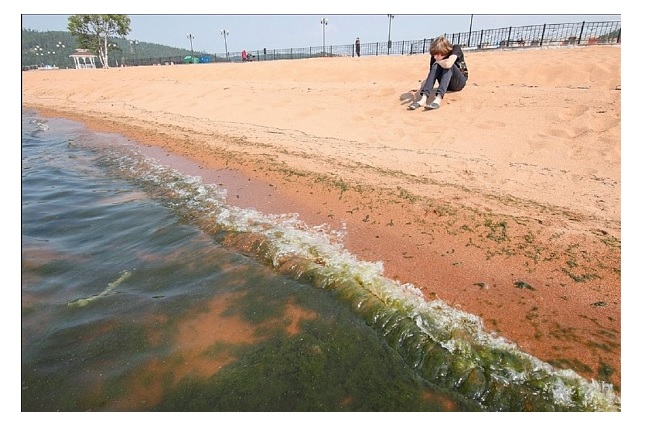June 1, 2021
June 5 is the day when people annually celebrate the World Environment Day. This day was established in 1972 by the UN General Assembly. This year, the event is dedicated to the protection and restoration of valuable ecosystems affected by human impact and climate change. Right before the World Environment Day, the Russian mass-media "Ecology of Russia" initiated the ecosystems week to speak about the role of the most vulnerable ecosystems of our country and the planet as a whole.
 Fresh water is one of the most valuable resources of pur planet. Rivers and lakes all around the world are sources of food, drinking water, energy for billions of people, and home to thousands of plant and animal species.
Fresh water is one of the most valuable resources of pur planet. Rivers and lakes all around the world are sources of food, drinking water, energy for billions of people, and home to thousands of plant and animal species.
But according to UNO, today the freshwater systems are having major problems.
"They are exposed to pollution from chemicals, plastics and sewage effluents, also they are suffering from overfishing and excessive water intake for crop irrigation, electricity generation and electricity supply to industrial facilities and residential houses. Water dams and sewage systems, as well as the mining of sand and gravel, have an additional impact on the rivers," the UN officials said.
 For instance, in recent years, many lakes and rivers in Russia have become very shallow. The situation in the South of Russia has turned particularly disastrous. The water is abandoning the water reservoirs, but the humans are in no hurry to change the situation.
For instance, in recent years, many lakes and rivers in Russia have become very shallow. The situation in the South of Russia has turned particularly disastrous. The water is abandoning the water reservoirs, but the humans are in no hurry to change the situation.
"The South of Russia - the Rostov oblast, the Don and the Volga Rivers water catchment area - faced natural low water. There, the shortage of water began in 2006-2007 and continues to this day. Water from the Don River is taken for economic activities, irrigation of fields. The water resources are used for a variety of needs. Water needs due care, the riverbeds should be cleaned, and the condition of canals should be improved," explained Natalia Frolova, Head of the Department of Land Hydrology at the Faculty of Geography of Moscow State University.
Agricultural activities cause harm to the wetlands. Humans specifically drain them for creating crop fields: over the past 300 years, about 87% of the world's wetlands have been lost. The UN informs that every third species of freshwater organisms is threatened with extinction.
The pollution of water bodies is a huge problem for water resources. According to UNESCO, 80% of the world's wastewater is returned to the ecosystem without purification. The drains cause growing of vegetation in rivers and lakes. Algae are developing more actively in the context of global climate change. They deprive the water of oxygen, which is the main source of life for fish and microorganisms.
Spirogyra and filamentous alga - invader-algae began to develop even in the Lake Baikal. Ecologists associate the growing of harmful microorganisms with the increased anthropogenic load. Untreated effluents and detergents - an ideal environment for the development of bacteria get into fresh water.
Industry makes a negative contribution to the rivers and lake ecosystems. Not all the representatives business are responsible for preserving the valuable resource. Oil spills occur from time to time when the toxic fuel penetrates into reservoirs. Gold miners cause great damage to the rivers. From constant discharges, clean rovers of the Far East and Siberia are turning orange, and all life dies there.
Source: https://ecologyofrussia.ru/voda-ekosistema/
Translated by Muhiddin Ganiev